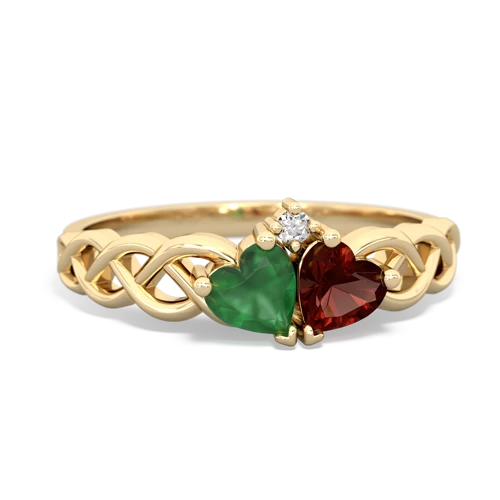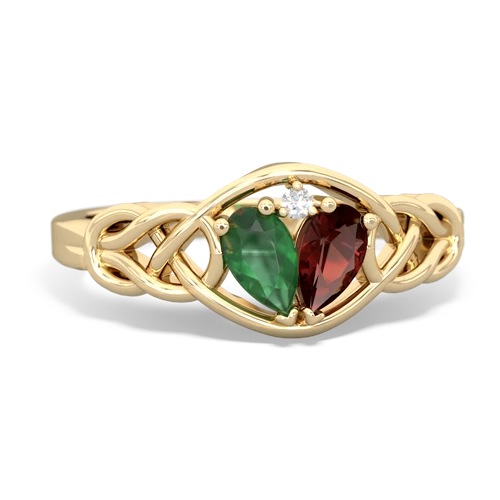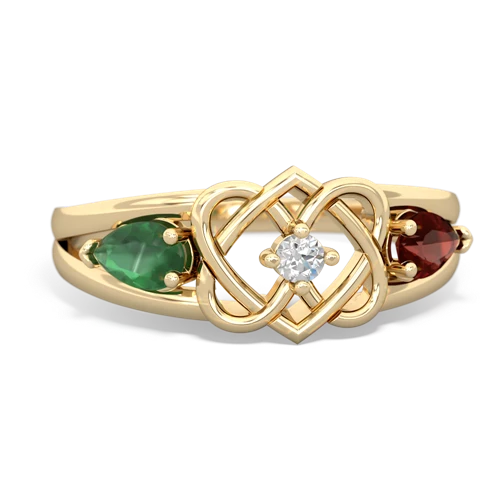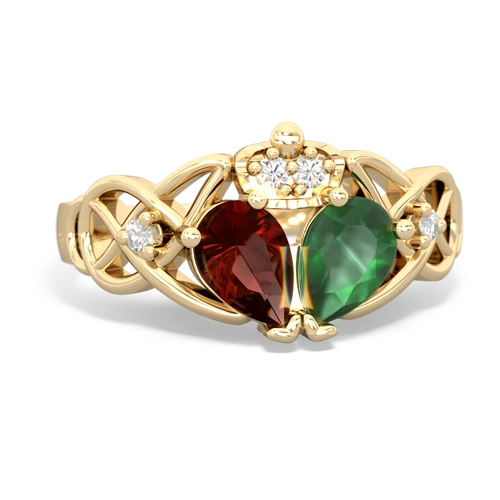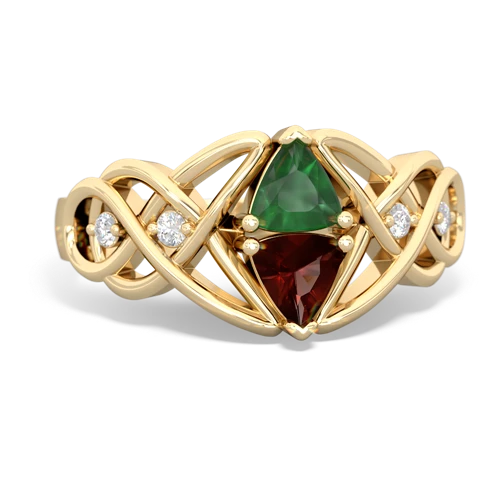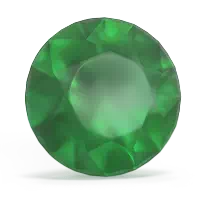
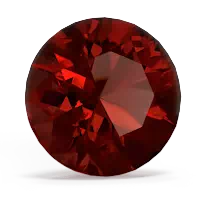
The celtic knot is an ancient symbol of the journey of life. With no beginning and no end, the knot represents the timeless nature of our spirits and the world we live in. A Emerald celtic knot combines these concepts with the spiritual attributes of the Emerald . The birthstone of May, an emerald ring symbolizes the eternally returning spring. The velvety green color of emerald is a perfect match for spring and summer fashions. One of the oldest gemstones in history, garnet is the birthstone of January. Garnet rings have been popular since Victorian times, and are treasured for their deep red color.
